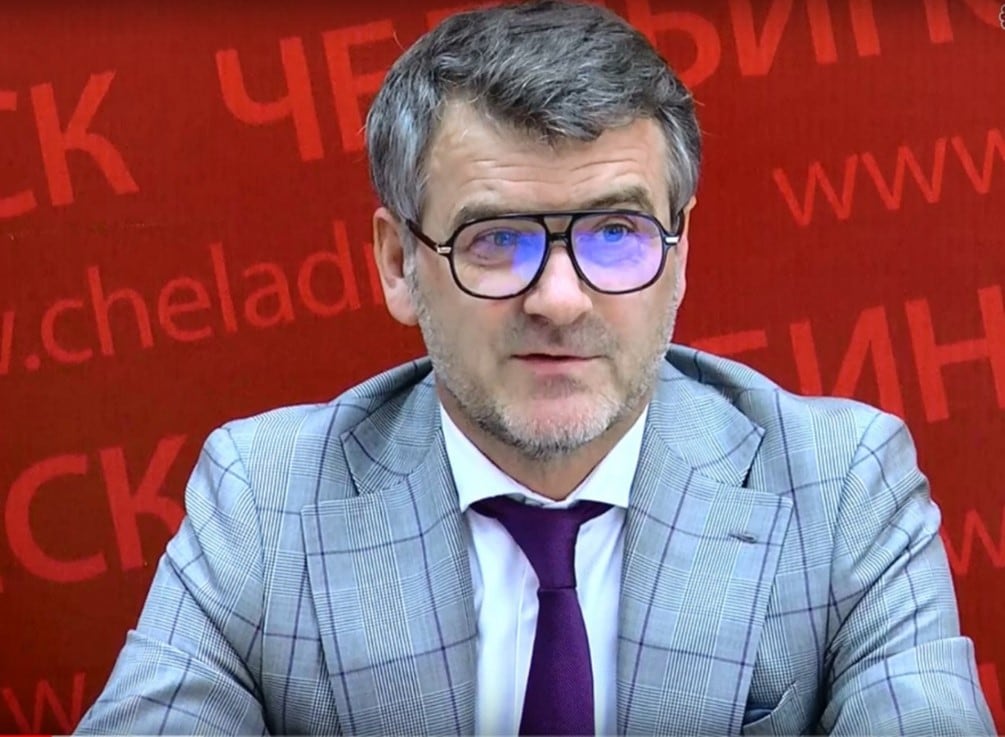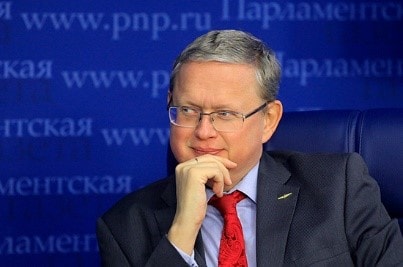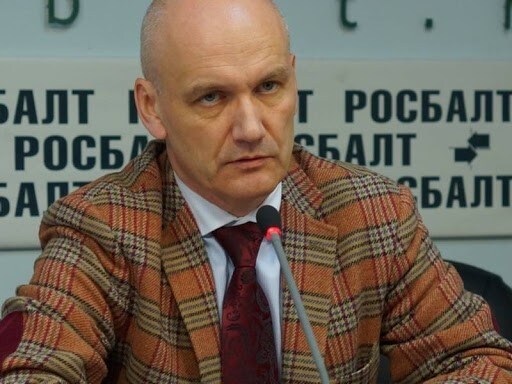On April 21, Russia’s President Vladimir Putin addressed the Federal Assembly in Russia’s version of the State of the Union Speech. The address was skimpy on foreign and defense policy and devoted primarily to domestic policy and particularly economics. Some like political scientist Marat Borisov claimed that this was a signal of reassurance to foreign countries that Russia was concentrating on its internal problems. “These are important questions that few people expected to hear. There were many skeptics in the country, and in the West, who were expecting ‘fiery speeches’ about out attack on somewhere. But the president stated that we are going to deal with the domestic issues. And this was probably the most important signal heard in the West”.[1]

Marat Borisov (Source: Lentachel.ru)
An alternative explanation would ascribe the emphasis on economics to the looming Duma elections that must be held before or on September 19, 2021. Economic issues are the area where the government is weakest in opinion polls, as Russia’s citizens have been buffeted by a deadly combination of declining incomes and growing inflation.
Putin in his address attempted to show Russia’s citizens that the government was responsive to their pain: "We understand the heavy toll that the pandemic has taken on people’s welfare. Statistics show the aggravating effects of this outbreak on social inequality and poverty. It has been a challenge for all countries around the world – remember, all countries, not only Russia, are experiencing the same consequences. Certainly, we should be primarily concerned about the situation in our own country.
"We are now facing price hikes that are undercutting people’s incomes. Some urgent decisions have been made, of course, but we cannot solely rely on targeted and essentially directive measures. We remember potential outcomes. Back in the late 1980s and the 1990s in the Soviet Union, they resulted in empty store shelves. But today, even when the pandemic was at its worst, we did not allow the same thing to happen.
While Putin described the government's main goal as ensuring “that people’s real incomes grow – that is, to restore them and secure their further growth’’, he basically could come up only with pre-natal benefits and support for single parent families. Putin also promised major investments in schools, science and cultural initiatives. In a departure, Putin made a major pledge to improve the environment and was ready to appropriate funds from federal sources despite the objection of financial experts.
Putin’s address was analyzed in terms of its response to the economic challenge. Naturally, Russian officials enthusiastically endorsed it wholeheartedly. One pro-government expert declared the pledges economically feasible. Regime critics branded the Putin proposals as parsimonious and worthless under conditions of inflation. They accused Putin of dodging the real problems of the economy and effectively attempting to produce milk without a cow. Until the problems were genuinely addressed the grandiose proposals would remain a pie in the sky.
MEMRI’s report on reactions to the economic aspects of Putin’s address follows below:

Putin addresses the Federal Assembly (Source: Iz.ru)
Enthusiastic Reception From Officials
Vyacheslav Volodin the Duma Speaker endorsed Putin’s speech speaking on the Russia 24 TV channel Volodin praised Putin for outlining new standards in announcing support for pre-natal child support and help for single parent families. These were firsts and signaled a positive trend: "As the economy develops, the social assistance will no doubt increase too. This is a new standard. Social assistance is becoming more and more tangible. The state’s social policy is getting more effective, and the President is taking active steps in this direction."[2]
The Chairman of the ruling United Russia Party, and the Deputy Chairman of the Russian Federation's Security Council, Dmitry Medvedev said that Vladimir Putin’s message should become a direct guide for the party’s actions.
"The President’s address to the Federal Assembly, which we have heard, is a strategic plan for the state's development in coming years. As a party which supports the president, United Russia has a particular responsibility for the realization of this plan."[3]
Medvedev's position was dictated not only by loyalty to Putin but by the realization that the address was intended to shore up United Russia's position in the polls prior to the elections.
Delyagin: Russia Has The Resources To Back Putin's Promises
Economist Mikhail Delyagin, the founder of the Institute of Globalization problems (IPROG) and a member of the Defense and Security Council, believes that Putin's promises can be realized and Russia can mobilize the money needed for their implementation.
Delyagin believes that the requisite funds can be recruited from three sources:
"Firstly, there are current budget revenues. Let me remind you that we have a budget that is in surplus"[4]
SUPPORT OUR WORK

Secondly, there is Russia's rainy day National Welfare Fund. "Vladimir Vladimirovich [Putin] covered everything in his address to the Federal Assembly. He named the National Welfare Fund, which has plenty of money."
Thirdly, Delyagin believes that Putin will lean on corporate Russia to help finance the programs: "Among potential sources of funding there are also the assets of corporations that might be used to develop the country and improve the well-being of Russians." Delyagin recalled that Vladimir Putin claimed that business was expecting record high profits: "The head of state clearly stated that these assets leave the country. So, if they [business] won’t start investing in the country, the government will reconsider what new benefits should be granted to business." [5]In other words, Putin would be able to offer the corporate leaders an offer they couldn't refuse.

Delyagin Pnp.ru
Igor Nikolaev: American Sanctions On Russian Debt And Inflation Tie The Government’s Hand
Igor Nikolaev, Director of the Institute for Strategic Analysis accurately predicted five days before the presidential address that Putin had little to offer in the short term aside from maternity benefits and child support. Nikolaev argued the following in his prescient forecast:
"— We see that the ruble’s [exchange rate] was weakening precisely with expectations of US sanctions in the background. What are the consequences of the ruble’s depreciation? First of all, there is inflation. Even the Minister of Economic Development, Maxim Reshetnikov, had to admit that one of the reasons for food prices skyrocketing was the depreciation of the ruble.
"But the authorities have an interesting way of thinking. On the one hand, they assure us that the depreciation of the ruble against the major world currencies should not concern our people, because they receive their salaries in rubles. On the other hand, the minister named the weakening of the national currency to be one of the reasons for inflation. But since the weakening of the ruble affects inflation, then people, in fact, should be concerned ...
"Also, I believe that the American sanctions on the Russian national debt will not allow the implementation of such massive financial support for the population.
"I suppose that on April 21 we will hear some catchy proposals, as it happened a year ago with one-time payments for families with children. Our authorities won’t go for any mass financial aid."[6]

Igor Nikolaev Worldcrisis.ru
The leader of the liberal Yabloko Party, Grigory Yavlinsky, interviewed on KP radio claimed that Putin had dodged the major questions, hadn't identified how his programs would be paid for. In any case, inflation would devour the government handouts.
Interviewer: "Grigory Alekseevich [Yavlinsky], what do you think about the president’s address? Personally, I was expecting something epochal, that he was moving troops. I read your article on this issue; you too had somber expectations.
Yavlinsky: "The expectations that I conveyed in my article have come true. Because my article states that there won’t be any grandiose announcements, but there also won’t be solutions to the most important problems, for example, problems like the very poorly and sluggishly performing economy. There will be no answer to the question of why we are lagging so much in technological development..."
Interviewer: "Grigory Alekseevich, in fact, Vladimir Putin mentioned a lot of good things. (…) He promised a lot of money …trillions of rubles. On the one hand, this is great, but on the other hand, from where did such wealth appear so suddenly?"
Yavlinsky: "I need to outline several important issues in this regard. If prices continue to rise, then all this financial aid will be offset by the rise in prices."
Interviewer: "In other words, inflation will 'devour' this financial aid?"
Yavlinsky: Of course, if prices continue to rises. And people fully understand that official indicators are one thing, and price tags in stores are quite another...
"I’ll put it this way. This address is sort of a concept of milk without a cow. The President’s address should’ve covered the issues that you’ve mentioned. Where to get this money? How to improve our economic system? How to reform our legal system? How to change attitudes towards small and medium enterprises? How to solve the problem of state capitalism?...
Interviewer: "But the money is already there?"
Yavlinksy: "Well you can print as much [money] as you want...For example, spending on the national economy in the 2021-3 budget fell nominally by 2% and in real terms by today's [rates] by 12%. Can you understand from where all this [money] can be taken...[7]
Rosbalt.ru, April 23, 2021
Rosbalt.ru's columnist Sergei Shelin wrote an opinion piece titled "The Bosses Intend to Buy the People on the Cheap" where he accused Putin of being parsimonious.
"Last year, household spending on final consumption fell by 8.6%, or about 5.2 trillion rubles. (in 2020 prices). This is 20 times more than Putin has now ordered to be given to the people...
"Even in the most prosperous societies, the authorities should not and cannot fully compensate their citizens for their crisis-inflicted losses. But they are usually expected to give a fair share of the money they get, and that the bulk of the aid will go to those most in need."
Instead of instituting programs that would subsidize the poor on a permanent basis Putin preferred one-time payments.
The former method was preferable, because "in contrast to the one-time "Putin" payment, children in poor families would receive, together with everyone else, not a one-time, but a permanent subsidy, and, moreover...a much larger one.[8]
The philosopher and historian Igor Chubais said that economic projections were highly speculative when official statistics remained politically slanted: "
[Russian business leader Oleg] Deripaska, who yesterday wrote that 80 million Russians live below the poverty line, was 'strongly advised' to delete the post. The billionaire had to correct the text. He wrote that in fact not 80 million residents live below the line, but just 18 million ... In general, it is impossible to restore trust in official statistics. Sometimes the president mentioned some new benefits and allowances, but it sounded as if we didn’t deserve it, but that Putin personally, out of his own pocket, decided to give money to the people."[9]
[1] Ïz.ru, April 22, 2021.
[2] Duma.gov.ru, April 21, 2021
[3] Aif.ru, April 21, 2021.
[4] While the overall budget is in the red, there are many items where the original allocations were only partially spent.
[5] Delyagin.ru, April 22, 2021.
[6] Rosbalt.ru, April 16, 2021.
[7] Yavlinsky.ru, April 22, 2021.
[8] Rosbalt.ru, April 23, 2021.
[9] Echo.msk.ru, April 21.2021




